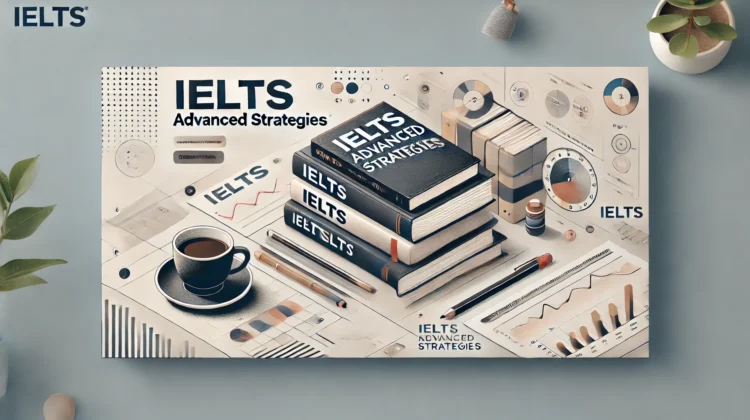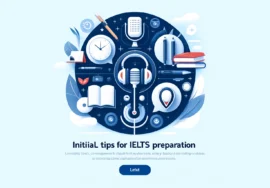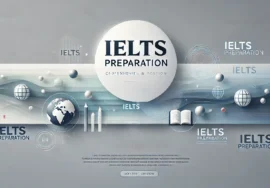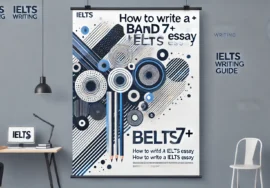
Essential Grammar for IELTS
Master the essential grammar structures needed for the IELTS exam with advanced strategies for success. Learn how to avoid common mistakes, understand complex sentence structures, and improve your writing and speaking skills with practical grammar exercises and effective use of linking words.
Essential Grammar for IELTS
Introduction: Building the Foundation for Advanced IELTS Success
The IELTS exam is one of the most widely recognized English proficiency tests in the world, and it plays a crucial role in academic and professional opportunities for non-native English speakers. Whether you’re aiming for a top band score or simply looking to improve your skills, understanding the fundamental grammar rules that underpin the IELTS exam is essential.
In Week 3 of our advanced IELTS preparation, we will focus on essential grammar structures, common mistakes, and how to fix them. We’ll also dive into practical grammar exercises that help solidify your understanding and enable you to use grammar confidently in your writing and speaking. Mastering these grammar skills will give you a significant advantage when approaching the more complex aspects of the test, especially in writing and speaking tasks that demand accuracy and fluency.
In this post, we’ll explore the key grammar points that are critical for IELTS success, the most common errors students make, and how you can refine your grammar skills to reach your target band score.
Key Grammar Structures for IELTS

To excel in IELTS, it’s vital to have a solid grasp of key grammar structures that frequently appear in the test. These structures help you build clear, concise, and coherent sentences, which is crucial for both the Writing and Speaking sections.
- Tenses: The correct use of tenses is critical for conveying the right meaning in your responses. Whether you’re talking about past events, making predictions, or describing current facts, knowing when and how to use past, present, and future tenses correctly is key. For example, when describing a process in the Writing Task 1, you might need to use the present simple, while in Task 2, discussing past events may require the past perfect tense.
- Modals of Suggestion and Advice: In the Speaking section, you may need to express your opinion or offer suggestions. Learning how to use modals like should, ought to, might, could, and would correctly will help your responses sound more natural and varied.
- Conditionals: Using conditional sentences (if-clauses) allows you to discuss hypothetical situations, which are common in both Writing and Speaking. Mastering first, second, and third conditionals will help you structure your ideas more logically.
- Relative Clauses: These are essential for providing additional information about nouns. For example, “The students who studied hard scored well.” Using relative clauses properly will help you create more complex sentences, which can boost your grammar score.
- Passive Voice: The passive voice is commonly used in academic writing. Understanding when and how to use passive constructions will help you write more formally and meet the task requirements in Writing Task 1 and Task 2.
Common Grammar Mistakes and How to Fix Them
Even advanced learners can make certain common grammar mistakes that can lower their IELTS score. Identifying and fixing these mistakes is essential for improving your grammar performance:
- Subject-Verb Agreement: One of the most frequent errors in both Writing and Speaking is failing to match the subject with the correct verb form. For example, “He don’t like coffee” should be “He doesn’t like coffee.” Pay attention to singular and plural forms to avoid such errors.
- Incorrect Use of Articles: The use of articles (“a,” “an,” and “the”) can be tricky, especially for non-native English speakers. Many students tend to omit them or use them incorrectly. A good practice is to memorize the rules for definite and indefinite articles, as this is a common mistake that can negatively affect your score.
- Run-On Sentences: When writing longer sentences, it’s easy to connect ideas improperly, leading to run-on sentences. This is a frequent mistake that can make your writing confusing. Break up long sentences and use appropriate punctuation, like commas and periods, to make your writing clearer.
- Prepositions: Using the correct preposition can be challenging, especially when they don’t directly translate from your native language. For instance, in English, we say “interested in” and not “interested on.” Familiarizing yourself with preposition patterns and practicing common collocations can reduce these errors.
Practical Grammar Exercises

To effectively improve your grammar for the IELTS exam, consistent practice is essential. Here are some practical grammar exercises you can try:
- Error Correction: Take sample IELTS writing tasks and identify common grammar mistakes within them. Correct the errors and rewrite the sentences correctly. This exercise helps you recognize errors and practice the correct forms.
- Sentence Transformation: Practice transforming sentences from active to passive voice, direct speech to reported speech, or simple sentences to complex ones using relative clauses. This will help you become more versatile in your writing.
- Tense Practice: Create short paragraphs that describe events in the past, present, and future. Focus on using the correct tenses and varying your verb forms to reflect different times and conditions.
- Using Linking Words: Connect your ideas with appropriate linking words like “however,” “furthermore,” “despite,” and “in conclusion.” Practicing this will help you form coherent, logically structured responses.
Understanding Complex Sentence Structures
Complex sentence structures are essential for achieving a higher band score, especially in Writing Task 2. These sentences can demonstrate a higher level of grammar proficiency and show that you can express more sophisticated ideas.
A complex sentence consists of an independent clause (a complete thought) and one or more dependent clauses (which rely on the independent clause to make sense). For example:
- “Although the city is known for its historical landmarks, it has modernized rapidly in recent years.”
To use complex sentence structures effectively:
- Practice combining sentences using conjunctions like “because,” “although,” “since,” and “unless.”
- Use relative pronouns like “who,” “which,” and “that” to add additional information and create more detailed sentences.
- Break down complex ideas into smaller components and express them through multiple clauses to create clarity and depth.
How to Use Linking Words Effectively
Linking words are crucial for both your writing and speaking responses. They help you connect ideas, present arguments, and create a smooth flow in your responses. There are several types of linking words to master:
- Additive Linking Words: These words help you add information to your argument. Examples include “furthermore,” “in addition,” and “moreover.”
- Example: “The company offers excellent services. Furthermore, it guarantees customer satisfaction.”
- Contrast Linking Words: Used to introduce opposing ideas, examples include “however,” “on the other hand,” and “although.”
- Example: “The weather was sunny. However, it was still very cold.”
- Cause and Effect Linking Words: These words show the relationship between events or actions, such as “because,” “due to,” and “therefore.”
- Example: “She was late because of the heavy traffic.”
- Conclusion Linking Words: These are used to sum up your argument, like “in conclusion,” “to summarize,” and “ultimately.”
- Example: “In conclusion, education plays a significant role in the development of society.”
Conclusion: Mastering Grammar for IELTS Success
Mastering essential grammar structures and understanding how to use them effectively is crucial to achieving a high band score in IELTS. Whether you’re preparing for the writing, speaking, reading, or listening sections, grammar will play a key role in how you express your ideas. Through consistent practice and focused exercises, you can eliminate common mistakes and improve your proficiency in grammar.
Remember, success in IELTS is not just about knowing the right answers but being able to express yourself clearly and accurately. By incorporating these strategies and continuing to refine your grammar, you’ll be well on your way to achieving your desired band score and succeeding in the IELTS exam.
Final Thoughts
For a successful IELTS preparation strategy, focus on both the mechanics of grammar and the fluidity of its application. With the proper understanding of tenses, sentence structures, linking words, and common grammar pitfalls, you’ll be ready to tackle any section of the IELTS exam with confidence and skill. Keep practicing, stay consistent, and don’t be afraid to seek feedback on your writing and speaking from experienced instructors or peers. With dedication and smart strategies, you’ll be well on your way to success.








